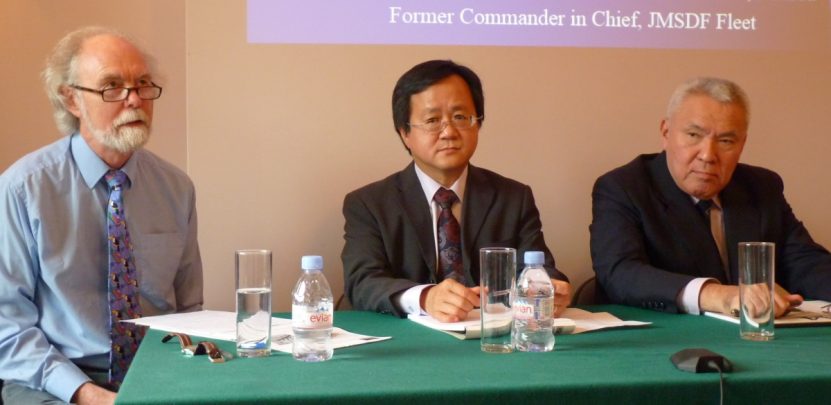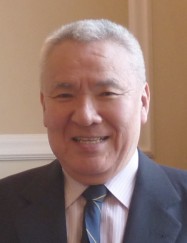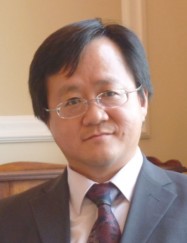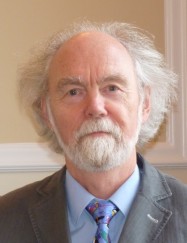 Seminar
SeminarTuesday 30 September 2014
6:00pm – 8:00pm
Keeping the doors open between China and Japan - the role of personal networks and Track II diplomacy
Drinks reception from 7:00pm
13/14 Cornwall Terrace (Outer Circle), London NW1 4QP
Organised by the Daiwa Anglo-Japanese Foundation
The phrase “Track II diplomacy” was coined by Joseph Montville and appeared in Foreign Policy in 1981. Montville wrote that “citizens could take some action rather than simply being bystanders while the grown-up governments acted like jerks”. Track II Diplomacy is a way for private individuals to meet unofficially and find their way to common ground when official negotiators cannot. NGOs, academics, and ex-officials often act as Track II diplomats in having unofficial conferences and conversations about pressing issues, and have sometimes brought them to a successful conclusion. Official government-to-government interactions are not necessarily the most effective methods for resolving differences between nations.
As we are now facing unconventional conflicts all over the world, we may need more opportunities for unconventional resolutions of these conflicts. To avoid any unwanted mishaps occurring, we should develop and maintain communication between states on many different levels. Even a ‘state actor’ can function as a Track II diplomat in private, when governments find it politically difficult to communicate with each other. Track II diplomacy is based on the assumption that conflicts can be resolved or eased by appealing to common human capabilities to respond to goodwill and reason.
Admiral Yoji Koda of the Japanese Self Defence Forces discussed the possibilities for Track II diplomacy between China and Japan, while Professor Steve Tsang of Nottingham University talked about the need for communications between academics to enable matters to be discussed openly. They examined the situation in the South China Sea, the difficulties faced by surrounding states, including Japan, and the importance of Track II diplomacy to avoid volatile situations turning into actual conflicts. The seminar was chaired by Professor Barry Buzan of the LSE.
Online Article
On 1 October 2014 an article about the seminar, written by Masato Kimura, has been published by Yahoo!Japan News.
The article can be found at:
http://bylines.news.yahoo.co.jp/kimuramasato/20141001-00039585/
About the contributors

Vice Admiral Yoji Koda
Vice Admiral Yoji Koda is a graduate of the Japan Defense Academy (1972), Japan Maritime Self-Defense Force College (JMSDF) Staff College, and the U.S. Naval War College. He retired from the JMSDF as Commander in Chief of the Self-Defense Fleet in 2008, and then moved on to the Asia Center at Harvard University, acting as a research fellow on the U.S.-Japan Alliance and Chinese Navy (2009 to 2011). He is a proficient writer on maritime and strategic subjects, and his most recent articles include A New Carrier Race and The Russo-Japanese War, published by the U.S. Naval War College. He was also one of the contributors to Refighting the Pacific War (Alternative History of World War II), published by the U.S. Naval Institute in 2011.

Professor Steve Tsang
Professor Steve Tsang is Head of School and Professor of Contemporary Chinese Studies at the University of Nottingham. He served as Director of the university’s China Policy Institute from 2011 to 2014. He was educated at the University of Hong Kong and the University of Oxford until 2011. During his three decades at Oxford he served as Dean of St Antony’s College, where he remains an Emeritus Fellow. His op-eds have featured in numerous newspapers across the world, including The New York Times, South China Morning Post and the Japan Times.

Professor Barry Buzan (Chair)
Professor Barry Buzan is Emeritus Professor of International Relations at the London School of Economics and Political Science (LSE), Honorary Professor at Copenhagen and Jilin Universities, and a Senior Fellow at LSE Ideas. During 1993 he was a visiting professor at the International University of Japan. In 1998 he was elected a fellow of the British Academy. Among his books are: Security: A New Framework for Analysis(1998, with Ole Wæver and Jaap de Wilde);International Systems in World History: Remaking the Study of International Relations (2000, with Richard Little); Regions and Powers: The Structure of International Security (2003, with Ole Wæver);The Evolution of International Security Studies(2009, with Lene Hansen); and Non-Western International Relations Theory (2010, co-edited with Amitav Acharya).